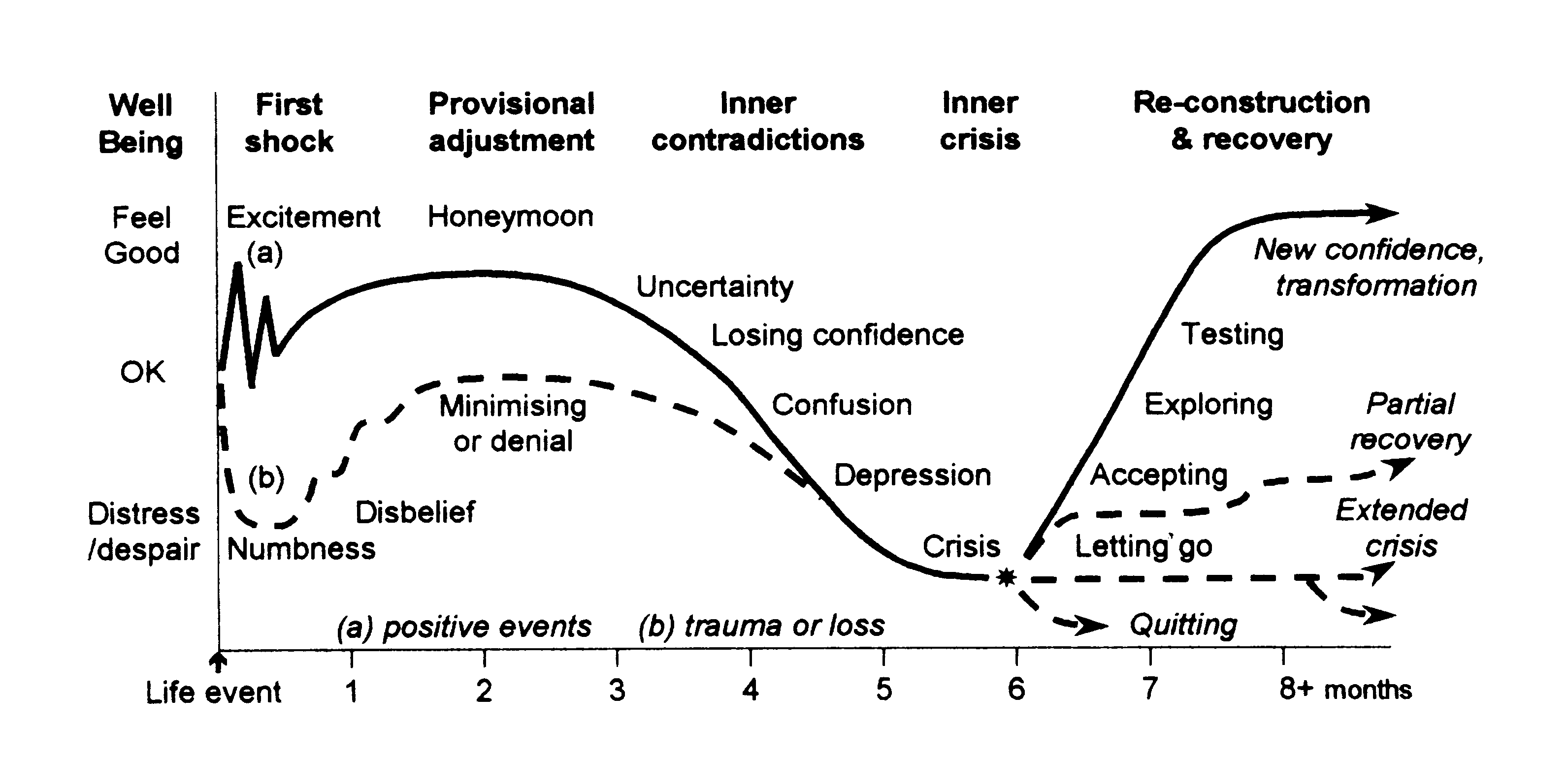How to overcome the pain of losing your job in 2007
London, UK
Are you seriously fearful or worried about losing your job this year? Well you may have good cause to feel a degree of anxiety. According to the Centre for Economics and Business Research (CEBR), the recent stock market madness could result in thousands on lost jobs in the City of London. Experts say tighter debt markets, fewer private equity deals and the Northern Rock crisis could see some 6,500 workers axed following four years of rapid growth.
The warning comes in a report from the Centre for Economics and Business Research (CEBR), which says most cuts - about 2,300 - will be seen in the investment banking sector. It also claims the fund management industry is expected to reduce its headcount by around 1,600. With fewer stock market launches on the cards, more traditional City sectors such as securities are expected to axe around 1,200 posts.
Have you dealt with redundancy before? Were you panicked by the situation, or did you take stock and recognise that it was an opportunity to do something different with your life? You may need to take time out and re-assess your aims and ambitions.
This I found very interesting about life after redundancy, or any other major life change. There's much more to read here:
The stages of transition were first recognised in the 60’s in studies of bereavement. In the 70’s it was realised that this process may be triggered by any major life event, good or bad, in work as well as personal life eg in a new job or after redundancy. The same process also accounts for the "survivor syndrome" – loss of morale in organisations a few months after large scale changes eg re-organisations, redundancies or take-overs.
Figure 1: The transition cycle - a template for human responses to change (Williams, 99)

The several phases of transition are shown in Figure 1. These involve predictable hazards, but can also lead to major opportunities. Initial reactions depend on whether the event was good or bad. But after 3-4 months inner contradictions develop between our old view of the world, or what we expected to happen, and the new situation. The issues are usually too deep to recognise eg feelings of betrayal after redundancy if we had given great loyalty to the organisation, or lost hopes for the future after separation or bereavement.
We may become irritable, then anxious or confused and lose confidence without knowing why. Stress and anxiety can develop into a personal transition crisis. If the contradictions affect deeply held beliefs they may de-stabilise other parts of our life. Trust betrayed in one situation may cast doubt on other relationships.
The main hazards of the crisis phase result from severe stress and failing to recognise beliefs that are no longer valid. This tension can lead to loss of sleep and hence fatigue, errors of judgement, loss of strategic thinking, accidents and indiscretions or "moments of madness". These put severe strains on work performance and personal relationships. There may be a strong urge to escape the situation – quitting jobs or relationships. If the situation is not recognised it may lead to nervous collapse needing several weeks of sick leave. If a whole team is in crisis this becomes evident in conflict and scapegoating.
Most individuals work through this crisis phase in a few weeks. Enabling factors include economic security, emotional support from family, friends and work colleagues, time for regular exercise and a supportive work environment. The key task to break out of the crisis phase is to identify and let go of hopes or beliefs that are no longer appropriate. To do this it helps to value good events before the change started and to re-affirm personal qualities and beliefs that are still important to us. This may happen in a "defining moment" which may include standing up for yourself on a point of principle.
For example a new relationship outside work may radically alter our life priorities so that overtime given freely (or demanded) before now imposes unacceptably on our personal time.
This may highlight unfairness in working practices that have been unquestioned for too long. Defining moments may look like rebellion to managers. But they may actually be valuable warnings in over-stressed organisations – one employee may be expressing an underlying concern that affects the morale and performance of many others.
Breaking out of a transition crisis is cathartic: an extended period of stress is released with a new sense of calm, well being and energy. Once our mind is freed up from strain it re-organises itself spontaneously within a few weeks. This recovery phase is an exciting process because we see the world more clearly. More accurate insights into the new reality help us to see new opportunities. Teams in recovery develop great energy and creativity. The recovery phase offers opportunities for personal development and starts a new life phase (check your lifeline for your own experiences of this). Seeing someone break out from crisis to recovery is like watching a flower open.Jeremy Jacobs



5 comments:
It is the most worrying and fearsome experience for anyone, especially those tie to mortgages. How very worrying.
It is interesting that in big Companies the Board, managers and Staff are often on different points on the change curve and additional change can catch the wrong people when they are in the slough of despond of previous change.
Ellee
Been there myself a couple of times Ellee. Nowadays, I'm a bit more philosophical!
Shades,
It's all those knee-jerk reactions to short-term situations.
Quite! Great article by the way.
Post a Comment